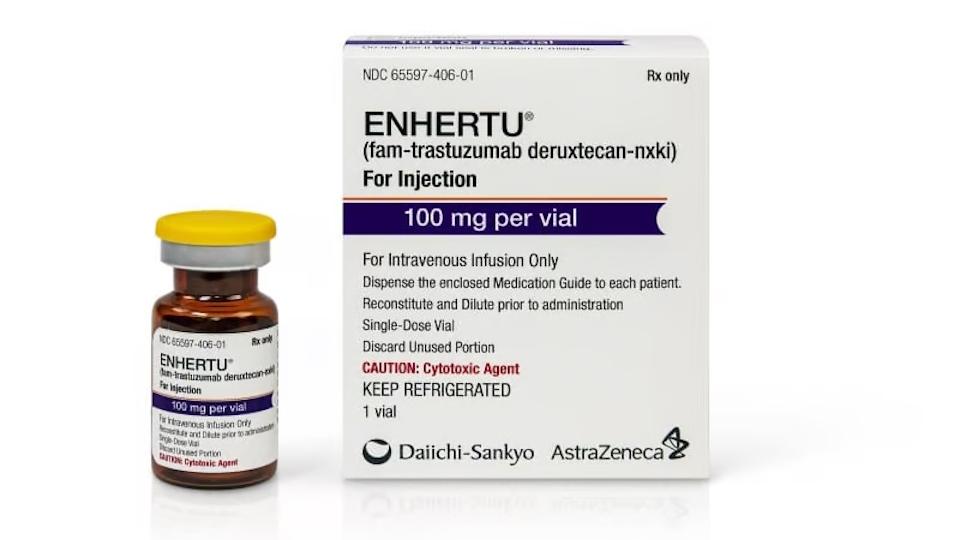New data could move Enhertu into early breast cancer

AstraZeneca and Daiichi Sankyo's anti-HER2 drug Enhertu has been shown to provide a benefit in a phase 3 trial in early-stage breast cancer for the first time, setting up regulatory filings.
The DESTINY-Breast11 study is pitting Enhertu (trastuzumab deruxtecan) followed by paclitaxel, trastuzumab and pertuzumab (THP) against standard care – chemotherapy followed by THP as a pre-surgery (neoadjuvant) regimen – in patients with high-risk, locally advanced HER2-positive early-stage breast cancer.
Approximately one in three patients with early-stage breast cancer are considered high risk, as they are more likely to experience disease recurrence and have a poor prognosis.
So far, AZ and Daiichi Sankyo's drug has shown it is better at achieving a pathological complete response (pCR), no signs of cancer are found in the tissue removed during surgery, which is the main outcome measure. At the moment, nearly half of the patients in this population who receive neoadjuvant treatment do not achieve pCR.
The two companies are following patients to see if they also show a significant improvement in event-free survival (EFS) with Enhertu compared to standard care. At the moment, there is an "early positive trend" for their antibody-drug conjugate (ADC) for that endpoint.
Enhertu is already approved for more advanced cases of HER2-positive breast cancer, as well as a string of other oncology indications, and made $3.75 billion in sales last year while adding another $1.09 billion in the first three months of 2025.
The new data and other recent trial results, including the phase 3 DESTINY-Breast09 trial in previously-untreated, HER2-positive advanced breast cancer, suggest that there could be plenty more growth to come as AZ drives towards a target of raising its annual revenues from a 2024 level of just over $54 billion to more than $80 billion in 2030.
AZ's head of oncology R&D, Susan Galbraith, said that the data show that Enhertu has the potential to challenge the current treatment approach in early-stage breast cancer.
"Enhertu is already an important treatment option in the metastatic setting, and these data have the potential to allow this medicine to move into early stages of disease where cure is possible," she added.
AZ and Daiichi Sankyo recently claimed their first approvals for a second ADC, TROP2-directed Datroway (datopotamab deruxtecan) as a treatment for patients with metastatic HR-positive, HER2-negative breast cancer who have previously been treated with endocrine therapy and at least one line of chemotherapy.
AstraZeneca has a target of $5 billion or more in peak annual sales for both Enhertu and Datroway as it pitches at its 2030 revenue target.












